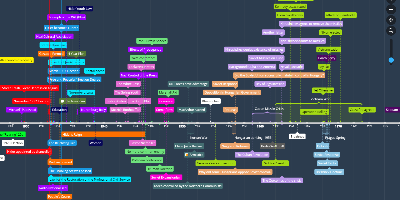28 ottob 1962 anni - The Outcomes of the crisis
Descrizione:
OUTCOMES FOR CUBA:-Cuba remained communist with Castro in charge. They were still a threat to the US. They had soviet weapons and there was no guarantee that the missiles wouldn't come back.
-Cuba could not trade with the US, remaining poor and isolated as they were dependant on the USSR.
OUTCOMES FOR THE USSR/KHRUSHCHEV:
-Some people say Khrushchev in a more positive light -> he acted responsibly and acted as a peace maker
-However, some people saw him as weak as he backed down (removing the missiles). He was replaced as Soviet leader 2 years later.
-The USSR was no longer threatened by the American missiles in Turkey. However as this was a secret agreement, Khrushchev could not take the credit.
OUTCOMES FOR THE USA/KENNEDY:
-The US had avoided nuclear war as the biggest threat (the missiles) had been removed.
-Kennedy looked as a good leader as he did not back down but continued to negotiate
-Cuba remained communist - a threat to the US
-Europe was angry at the US as they thought Kennedy had been selfish -> by protecting his own country, he put the whole European at risk.
-NATO was angry as the missiles in Turkey were technically NATO's.
GLOBAL OUTCOMES:
-Relationships between the US and USSR improved as Kennedy and Khrushchev were changed by the crisis; they almost destroyed the world. They knew that they couldn't do that again.
-A "hotline" was put in between the White House and the Kremlin to allow for easier communication between the US and Soviet leaders.
-A nuclear test ban treaty was signed so this could not take place on land, showing the world wanted to work for peace. However, these tests could take place in air or on water.
-But when Khrushcev and Kennedy were no longer in power, would these advancements made stay in place?
Aggiunto al nastro di tempo:
Data:
28 ottob 1962 anni
Adesso
~ 63 years ago
